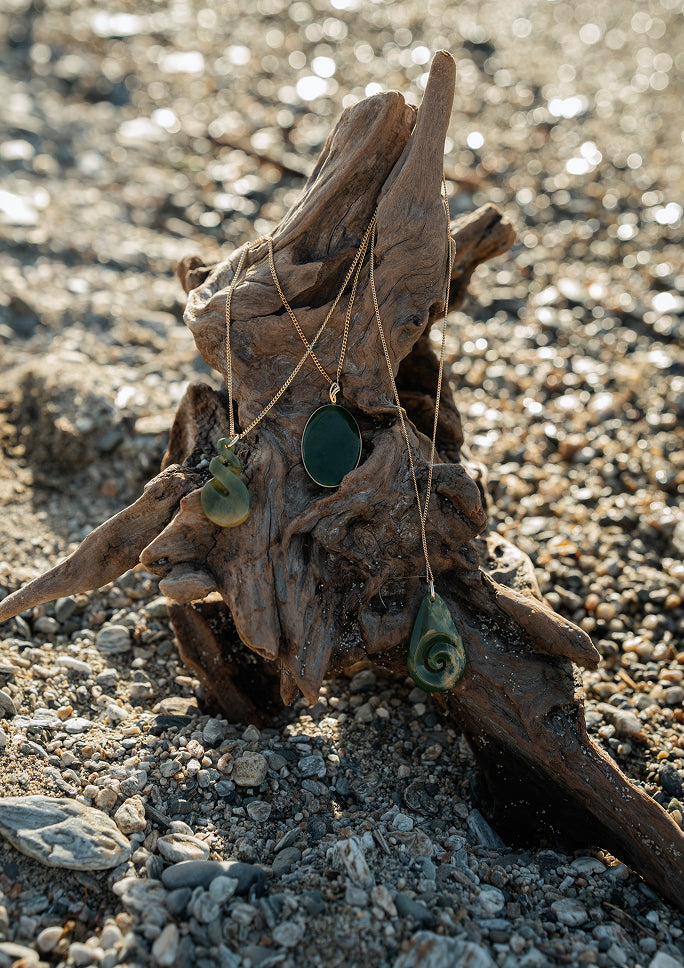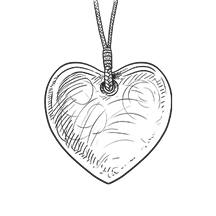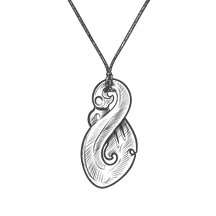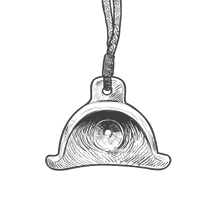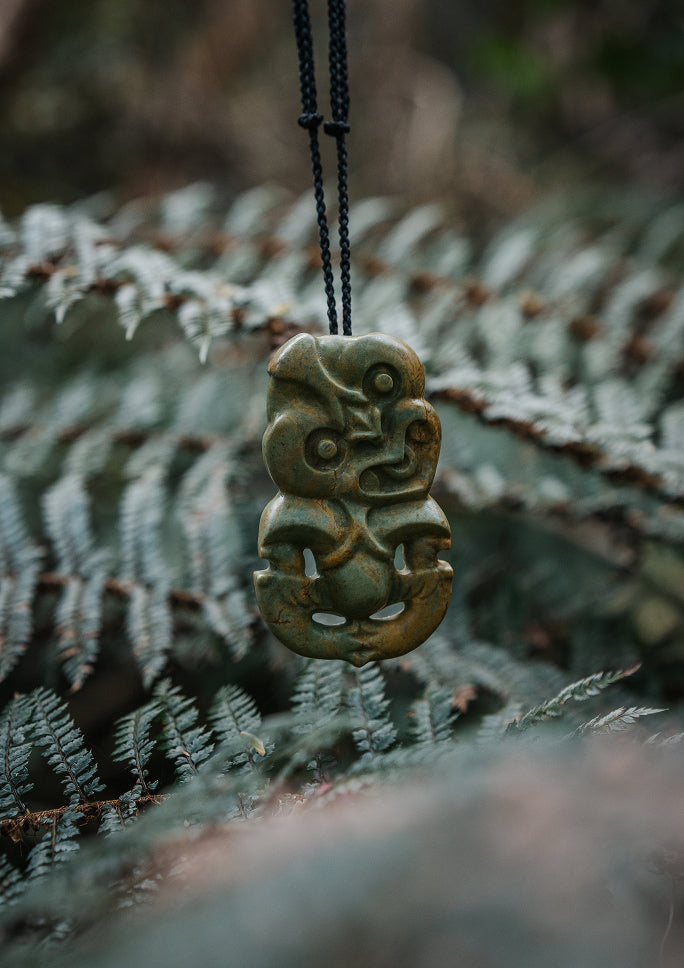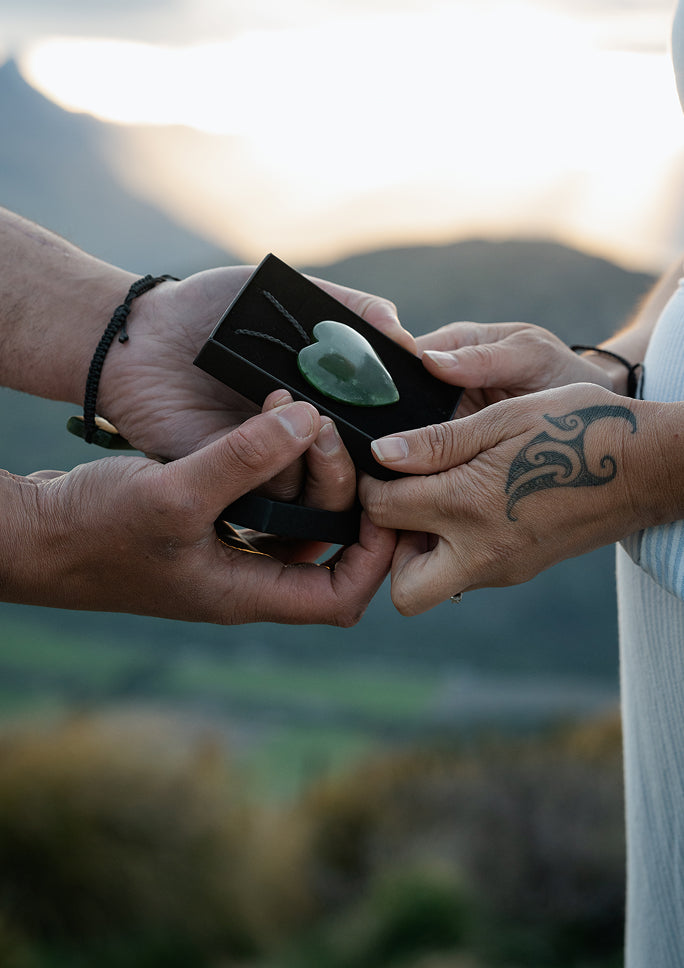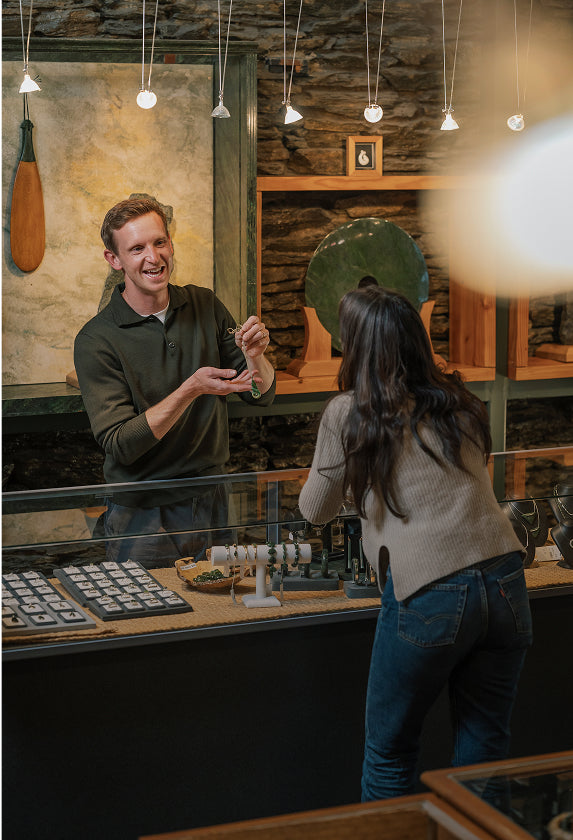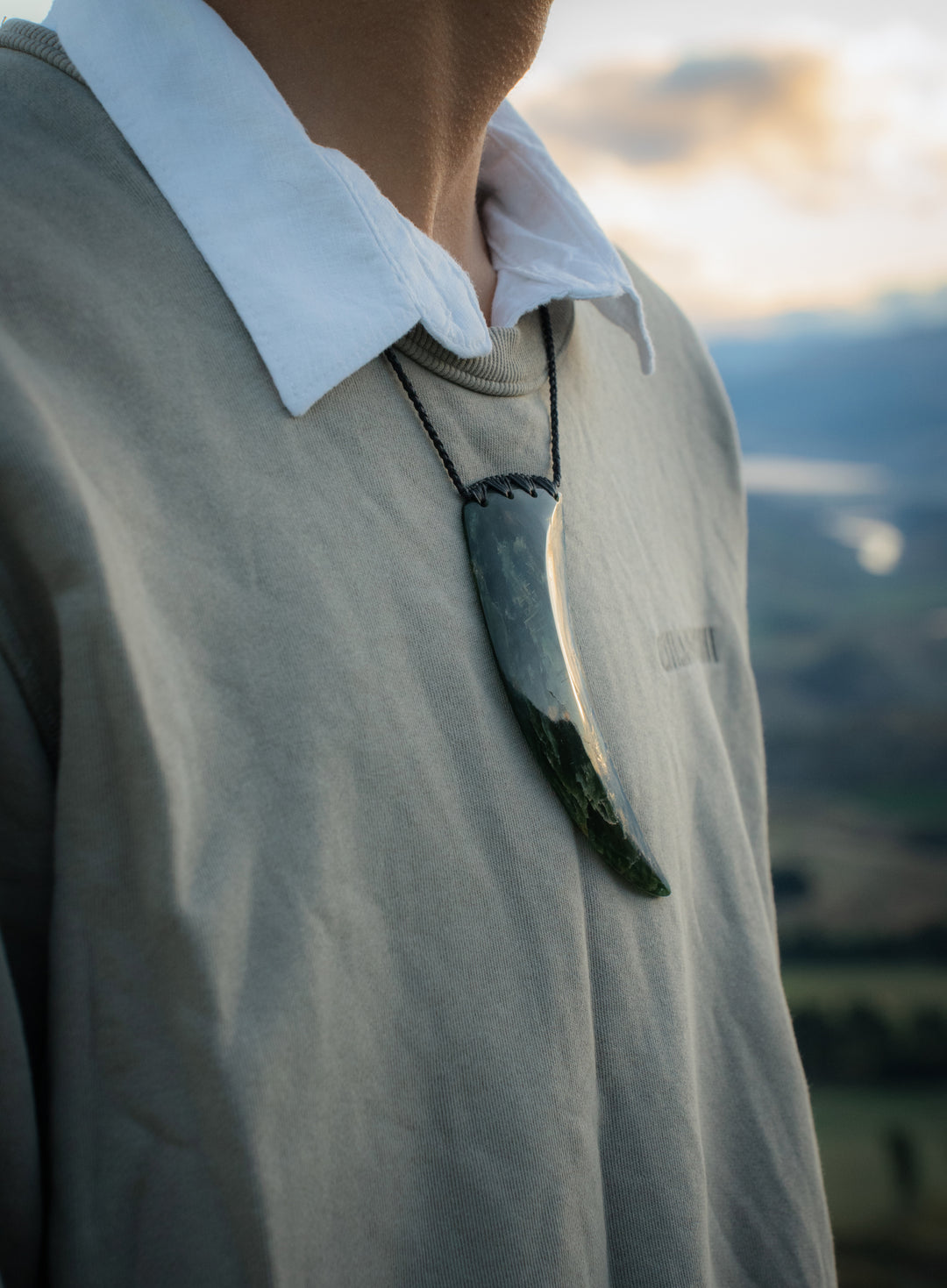
Meaning Behind the Niho
Niho means “tooth.” Historically formed from whale or shark teeth, today the shape is carved in pounamu, carrying forward its purpose of protection and guidance. Worn close to the skin, it links the wearer to the moana (ocean) and to qualities that endure.
Strength & Resolve: Courage under pressure.
Leadership: Guiding with calm authority and care.
Kaitiakitanga (Guardianship): Protecting people and place.
Niho in Early Māori Life — Rarity & Respect
Traditionally, whales were not hunted; teeth were gathered from natural strandings, making each rei niho rare and highly valued in Māori life. Early Aotearoa sites such as Wairau Bar (Marlborough) show both real whale teeth and finely crafted imitations in pounamu and bone, evidence the form was treasured from the beginning, and noted by early voyagers as highly valued and worn daily.
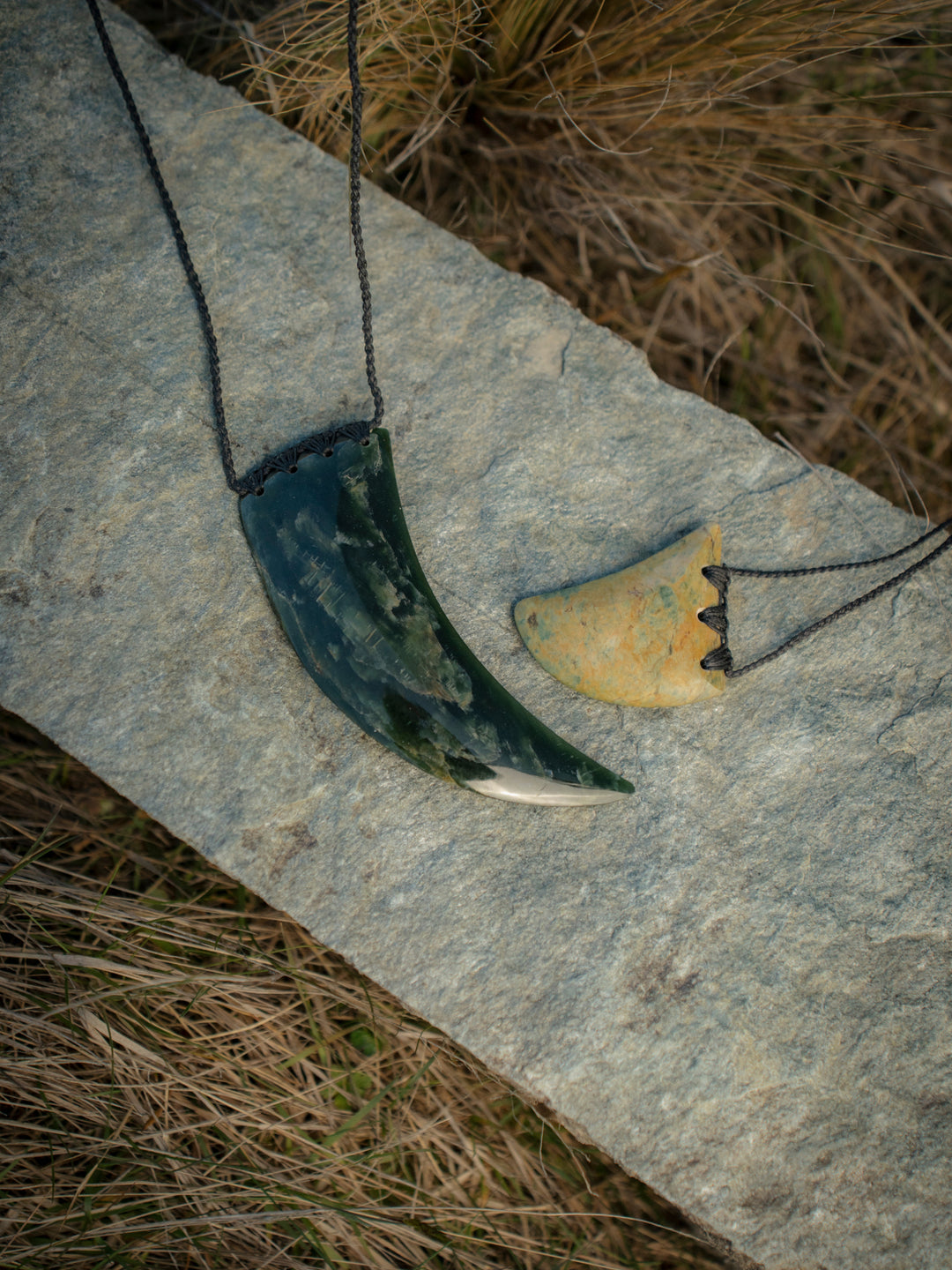
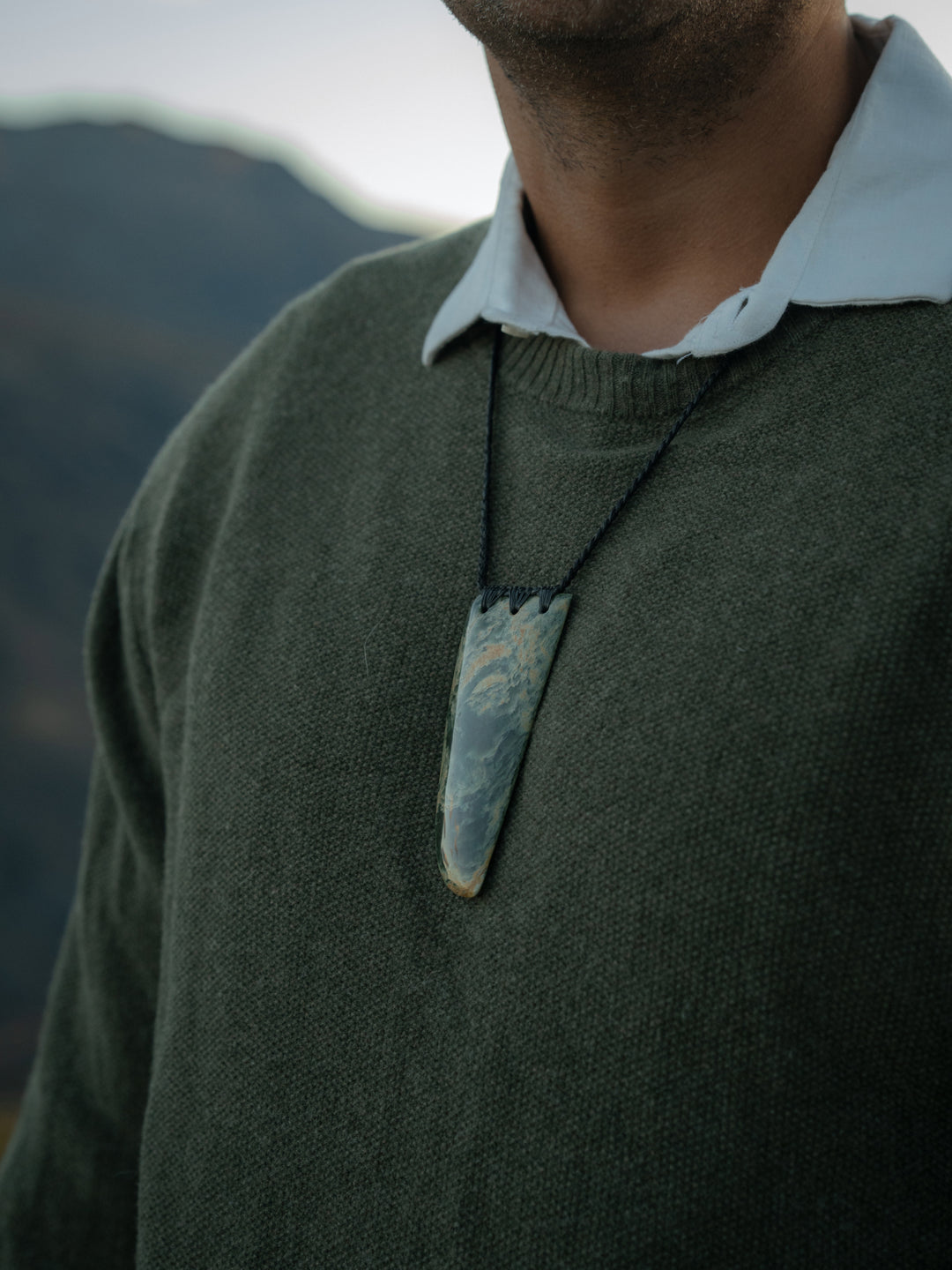
Niho Pacific Connections
Across Te Moana-nui-a-Kiwa (Pacific Ocean), related tooth forms include the Fijian tabua (a whale tooth given ceremonially) and the Hawaiian lei niho palaoa (a shaped ivory pendant worn on finely braided hair). Our Niho in pounamu sits within this ocean story and reflects Aotearoa values: kaitiakitanga (guardianship/stewardship), manaakitanga (care and hospitality), and whanaungatanga (connection and kinship).
When to Gift a Niho Pendant?
Leadership & New Roles
Marks leadership, responsibility, and steady guidance; ideal for mentors/kaitiaki.
Milestones & Achievements
Recognises perseverance, courage, and personal growth.
Moana Journeys & Water Life
Connects to the sea,great for surfers, divers, boaties, and fishers.
Strength Through Challenges
Offers protection and resolve during demanding seasons.

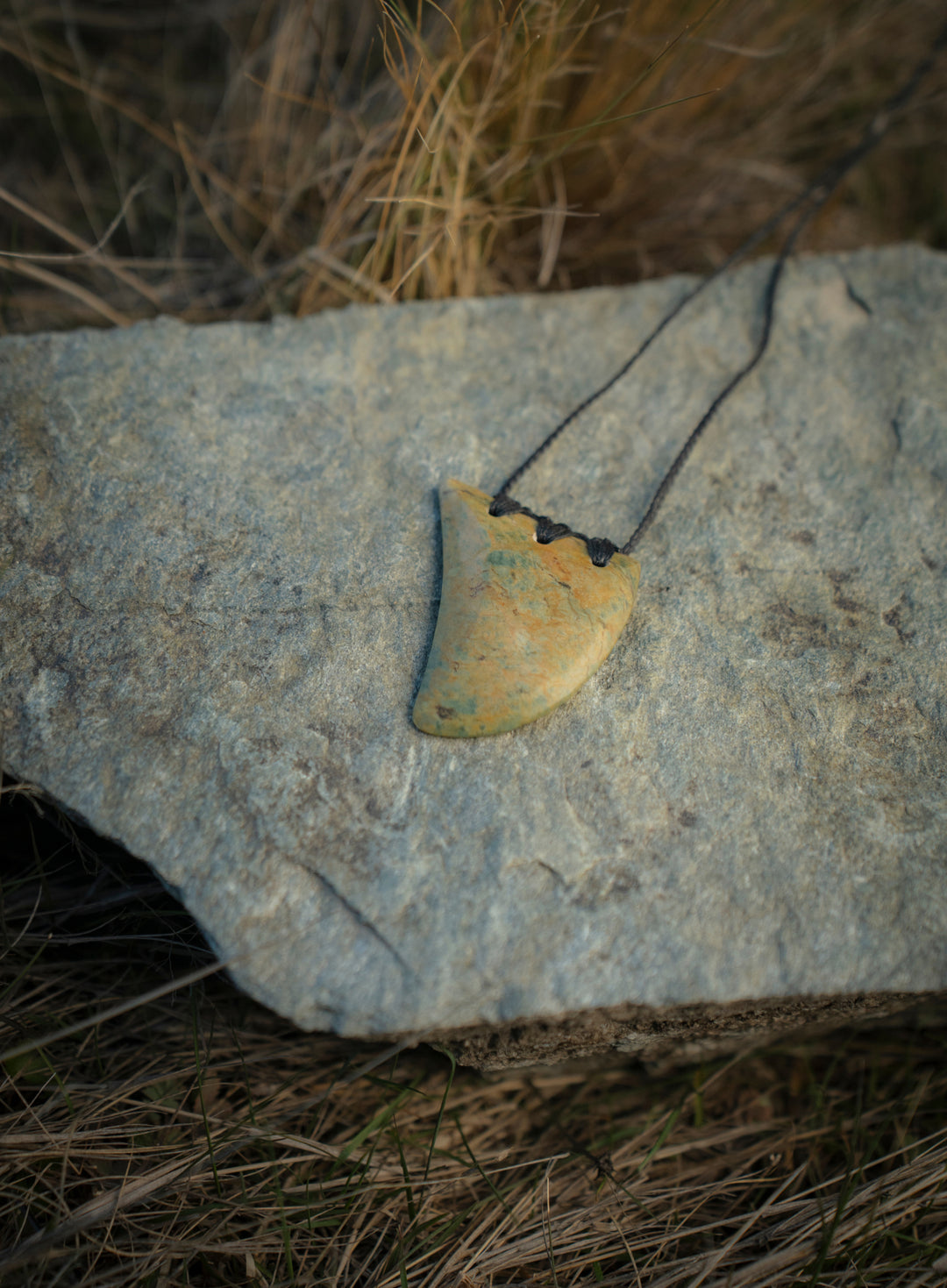
Caring for Your Pounamu
Durability – Pounamu (greenstone) is strong but can chip if dropped or knocked against hard surfaces. Handle with care.
Protection – Store carefully, keeping it away from hard or abrasive objects.
Wear Often – Daily wear deepens its lustre as the stone absorbs your skin’s natural oils. The cord will eventually wear; visit our website for traditional re-binding.
Cleaning – Wipe with a soft, damp cloth and mild soap. Occasionally nourish with a touch of beeswax or coconut oil. Avoid harsh chemicals.
Water & Cord – Swimming or showering won’t harm the stone, but chlorinated or salt water ages the cord faster. Rinse with fresh water, dry thoroughly, and expect to re-bing sooner (we can rebind for you with our pounamu rebinding services).
Frequently Asked Questions
Niho (tooth) symbolises strength, leadership, and guardianship. It reflects the mana of ocean guardians and a commitment to protect, guide, and provide.
Historically, yes. Today, Niho pendants are carved in pounamu out of respect for marine life, carrying forward the meaning of the original form.
The Niho pendant suits men, women, and young people. It resonates with those stepping into leadership, navigating change, working with or drawn to the sea, or known as protectors and providers.
Your pendant arrives unblessed, allowing you the freedom to follow your own tikanga (custom). A blessing is the personal act of imparting spiritual or symbolic meaning to your taonga. (See guidance below for blessing your pounamu)
Many people like to offer a simple blessing, especially when the taonga is a gift, while others prefer to begin wearing it straight away and let its meaning grow naturally over time. There’s no single right way. Follow whatever feels respectful and comfortable for you. If you’d like to include a blessing, the suggestions below can help guide the moment.
Awa (Water) Blessing
- Find flowing water such as a river, stream, or the sea.
- Hold the pendant in the current and speak a simple wish in your own words (e.g., “May this taonga keep you safe on every journey”). Let the water wash over it for a few moments, then dry it gently.
Shared Intention
- Hold the pounamu together with the recipient.
- Voice the hopes you have—protection, strength, safe passage.
- This shared moment of intention is a blessing in itself.
Karakia with a Kaumātua
- Ask a local kaumātua (elder) or visit a marae.
- They can offer a short karakia (prayer) and guidance on caring for the stone.
Whichever path you take, or if you decide to skip a formal blessing entirely, the pounamu will carry the meaning and respect you give it.
Āe (yes). Throughout history pounamu was both traded and gifted. Choosing a piece for yourself is a powerful act of self-care, connecting you to the wairua (spirit) of Aotearoa and the generations who have treasured this stone.
Discover Our Collection
No two pounamu niho are the same. Each pendant shows unique colour, translucence, and grain, chosen to reflect a personal journey of strength and guidance.

